Hair Treatment
Androgenetic Alopecia (Pattern Hair Loss)
A common form of hair thinning caused by genetic sensitivity to androgens (DHT). It results in gradual hair miniaturization over time.
Men: Receding hairline and thinning crown
Women: Widening part, diffuse thinning without receding
Causes:
- Genetics
- Hormonal imbalance
- Aging
Treatment Options at MG Clinic:
- Topical minoxidil (5% foam or solution)
- Oral finasteride (for men, inhibits DHT)
- Oral minoxidil (low-dose; emerging option for both men and women)
- PRP (Platelet-Rich Plasma) therapy: enhances hair growth by stimulating follicles
- Microneedling with growth serums
- Hair supplements (biotin, vitamin D, iron, zinc, amino acids)
- Scalp imaging and progress tracking
🧠 Early treatment offers the best chance for preserving hair density.
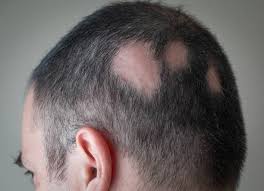
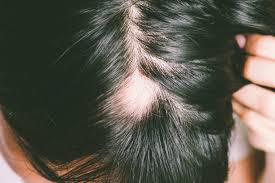
Telogen Effluvium
A temporary, diffuse hair shedding caused by a disruption in the hair growth cycle, pushing more hairs into the resting (telogen) phase.
Triggers Include:
- Stress, illness, surgery, weight loss
- Post-COVID-19 hair shedding
- Hormonal changes (e.g., postpartum)
- Iron or vitamin D deficiency
- Thyroid disorders
Symptoms:
- Sudden increase in hair fall (noticed on pillow, shower, comb)
- No scarring or bald patches
- Thinning more visible with longer hair
Treatment at MG Clinic:
- Identifying and correcting the underlying trigger
- Nutritional supplementation (iron, ferritin, vitamin D, B12)
- Topical minoxidil for support
- Counseling on realistic recovery timelines
- Gentle hair care guidance
⏳ Hair regrowth usually begins within 3–6 months after the trigger is addressed.
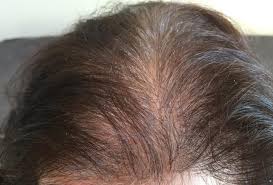
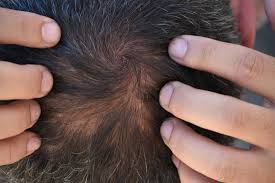
Seborrheic Dermatitis (Scalp Dandruff / Inflammation)
A chronic inflammatory scalp condition caused by Malassezia yeast overgrowth, excess oil, and immune response.
Symptoms:
- Flaky, greasy white or yellow scales
- Itchy, red scalp
- May extend to eyebrows, ears, and beard area
Treatment at MG Clinic:
- Medicated shampoos: ketoconazole, selenium sulfide, zinc pyrithione
- Topical corticosteroids for inflammation
- Anti-yeast creams or lotions (for face and ears)
- Regular shampoo routines to prevent recurrence
- Advice on avoiding overuse of oils or harsh hair products
🧴 Long-term control is achievable with regular maintenance.
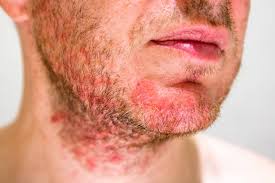
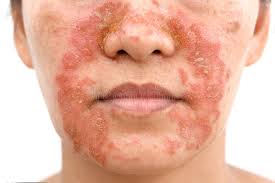
Alopecia Areata
An autoimmune condition where the immune system attacks hair follicles, leading to sudden, round patches of hair loss.
Variants Include:
- Patchy alopecia areata
- Alopecia totalis (entire scalp)
- Alopecia universalis (entire body)
Symptoms:
- Smooth, hairless patches
- “Exclamation mark” hairs at the borders
- May involve eyebrows, lashes, or beard
Treatment at MG Clinic:
- Intralesional steroid injections (first-line for small patches)
- Topical corticosteroids or immunotherapy (e.g., diphencyprone)
- Oral steroids or immunomodulators (for rapid/spread-out cases)
- JAK inhibitors (emerging therapy for resistant or extensive cases)
- Psychological support, eyebrow/lash camouflage advice
🧬 Treatment success depends on extent, duration, and individual response. Early intervention improves outcomes.


Scalp Fungal Infections (Tinea Capitis)
A contagious fungal infection of the scalp, mostly affecting children but can occur in adults too.
Symptoms:
- Scaly, patchy hair loss
- Broken hair shafts (“black dots”)
- Itching, redness, or pus-filled lesions (kerion)
- May lead to scarring if untreated
Diagnosis & Treatment at MG Clinic:
- Clinical exam + KOH test or fungal culture
- Oral antifungals (e.g., terbinafine, griseofulvin) — essential for cure
- Antifungal shampoos (to prevent spread)
- Close contact screening (household or school)
- Education on hygiene and sharing habits
🧼 Early treatment prevents permanent hair loss and transmission.
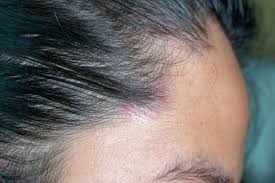
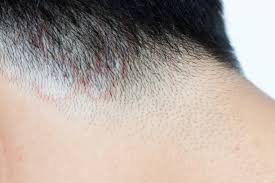
 MG Clinic
MG Clinic